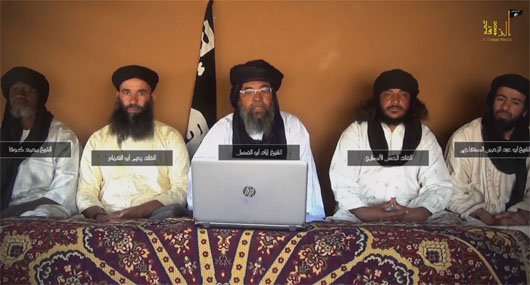Special to WorldTribune.com
UNITED NATIONS — Subsaharan Africa’s vast but impoverished Sahel region has been largely overlooked amidst the turmoil of Mid-East conflicts and East Asian regional instability.
Yet this arid swath of five countries comprising what’s known as the Sahel, remains wracked by poverty, hunger, weak governance, and environmental degradation, offers a breeding ground for terrorism and flashpoint for expanding instability.

Mark Lowcock, the UN’s Humanitarian and Relief supremo, went so far as to admit that while policy efforts on the national and international level, are “treating symptoms rather that the causes…policy is failing, and things are getting worse.”
The Sahel region of 135 million people, hosts some of the world’s poorest people; Mauritania, Mali, Burkina Faso, Niger and northeast Nigeria.
In blunt and candid comments to the European Council on Foreign Relations in Brussels, Under Secretary-General Lowcock stated “The Jihadist group Islamic State in the Greater Sahara has expanded its footprint over recent years, swallowing smaller extremist groups. In a span of just 10 years, more than 10,000 jihadist fighters have been recruited in the Sahel.”
He added that since 2012, “conflict, armed violence and inter communal clashes have displaced more than three million people within their own countries and forced more than a million more to flee to neighboring countries.”
In other words, the poor population are uprooted and many of whom later fall victim to human traffickers who put them on a perilous path to Libya and then onwards to Europe.
Just this year, more than 350,000 people have been displaced in Burkina Faso, Mali and Niger according to Lowcock who added, “The Sahel is now the most used and dangerous transit route for irregular migrants across the Mediterranean.”
Take Mali for example, the epicenter of a widening crisis where a UN peacekeeping mission has been hard pressed to stabilize a conflict rooted in poverty and ethnic rifts but fueled by terrorist movements. In a Security Council meeting renewing the mandate of the current peacekeeping force in Mali, the Secretary General’s representative conceded that despite, “formation of a new Government and legislation favoring economic development in northern Mali, there can be no lasting peace without improvements in the security situation.”
Just last week up to 90 villagers of the Dogon people, most of them Catholics, were killed by terrorists in Mali. French Ambassador Francois Delattre stated clearly, “The escalation of violence in northern Mali calls for urgent action… especially to prevent more massacres. ”
South African Ambassador Jerry Mathews Matjila expressed concern over the surge in terrorist attacks, “It is disturbing that incidents of inter-communal violence are increasing, which have ravaged communities, displaced people and worsened the humanitarian situation.”
Known as the awkward sounding United Nations Multi-dimensional Integrated Stabilization Mission in Mali (MINUSMA), remains the UN’s most dangerous operation with 177 peace-keepers killed in action. Though fielding a multinational force of over 15,000 military and police, the mandate covers a huge country, twice the size of Texas, but with rudimentary road transport and communications.
Since 2013, France has deployed a significant counterinsurgency effort in the region. Codenamed Operation Barkhane, some 3,000 French troops are active in the region working alongside African states, with special emphasis on Mali. The American military assistance role in this conflict remains small but significant in terms of intelligence and cooperation.
But military security alone is only one part of the solution. Humanitarian concerns remain paramount. The UN’s Lowcock adds that while humanitarian agencies are focusing on 15 million people throughout the impoverished region, with food, water and health services, “needs are vastly outstripping resources.” So far into 2019, humanitarian relief has reached only 22 percent funding.
When this correspondent asked Amb. Tijane Muhammad-Bande of Nigeria, President-elect of the upcoming General Assembly, how he will focus on the appalling violence in the Sahel, he responded that “The Sahel is a combination of environment and terror,” but these compounded problems are also combined with tragic the situation in Libya. The Ambassador advised, “Remember there is no national terrorism, everything now is global.”
But why is this smoldering situation so serious for Europe and the United States?
- First, it’s the consolidation of jihadi terrorism in an overlooked region.
- Secondly, the destabilization effect of chaos and migrants on fragile governments in Libya and in North Africa.
- Thirdly it poses a spillover potential of the crisis into Europe’s southern flank, especially into Italy.
The UN’s Lowcock warned “Further descent into conflict, insecurity and chronic poverty must be prevented in the Sahel. The current trajectory is extremely worrying.”
John J. Metzler is a United Nations correspondent covering diplomatic and defense issues. He is the author of Divided Dynamism the Diplomacy of Separated Nations: Germany, Korea, China (2014). [See pre-2011 Archives]

 By
By